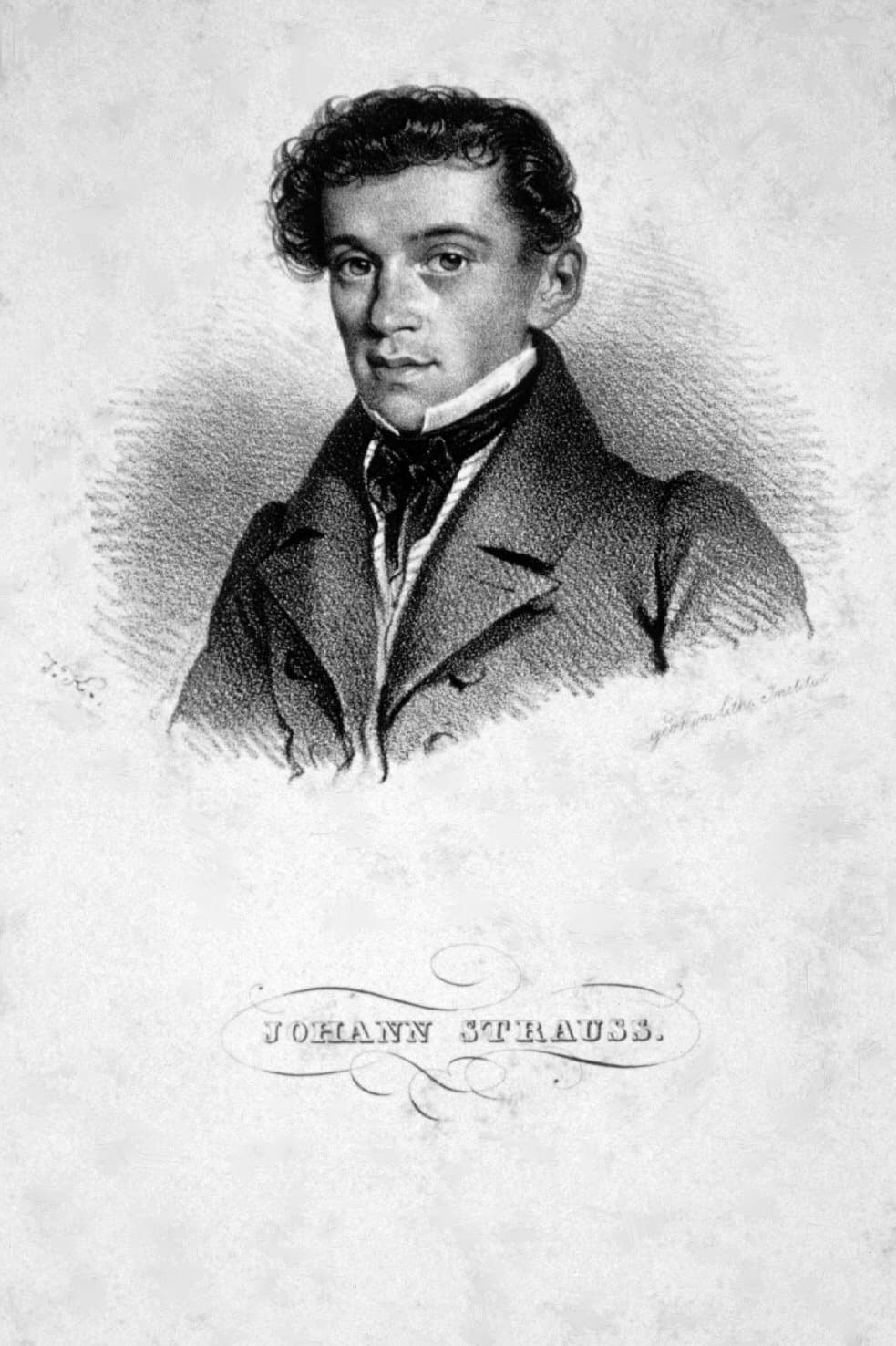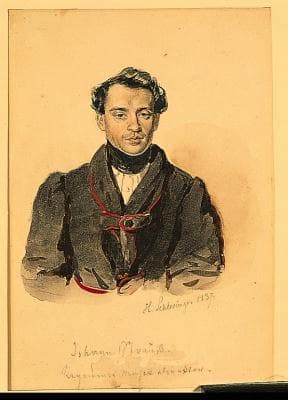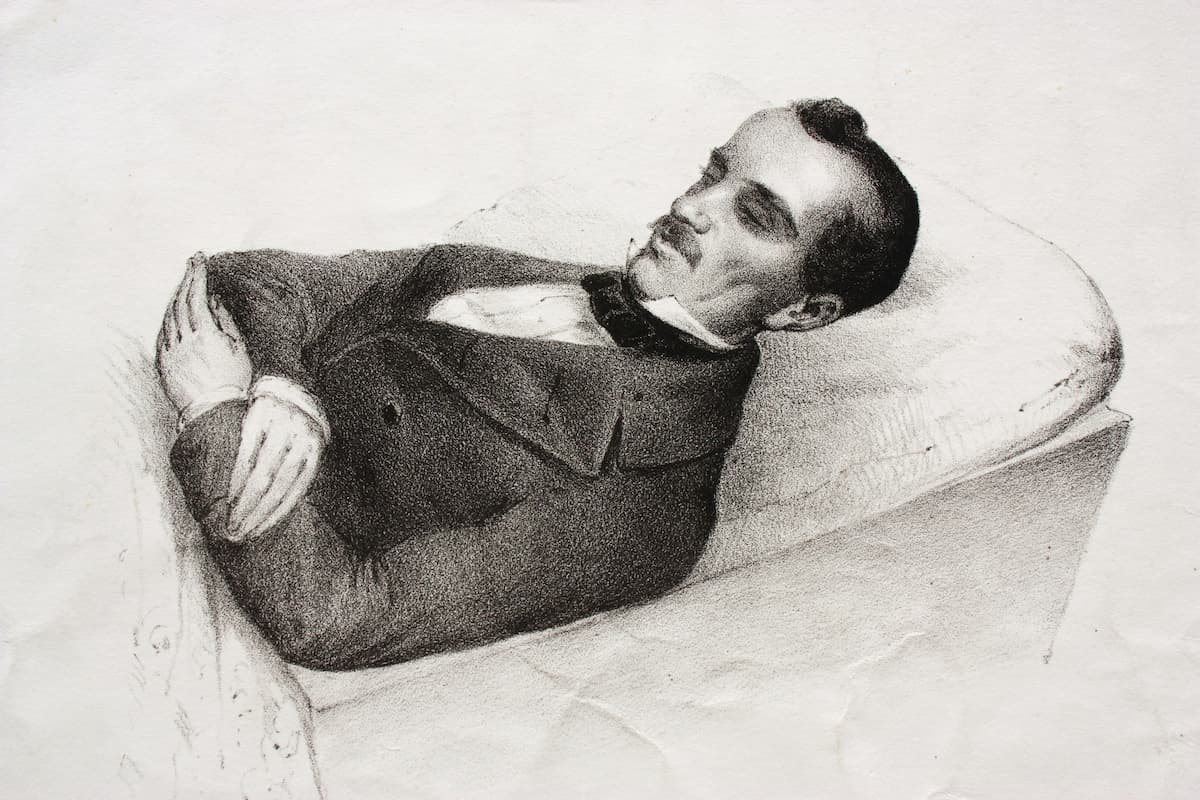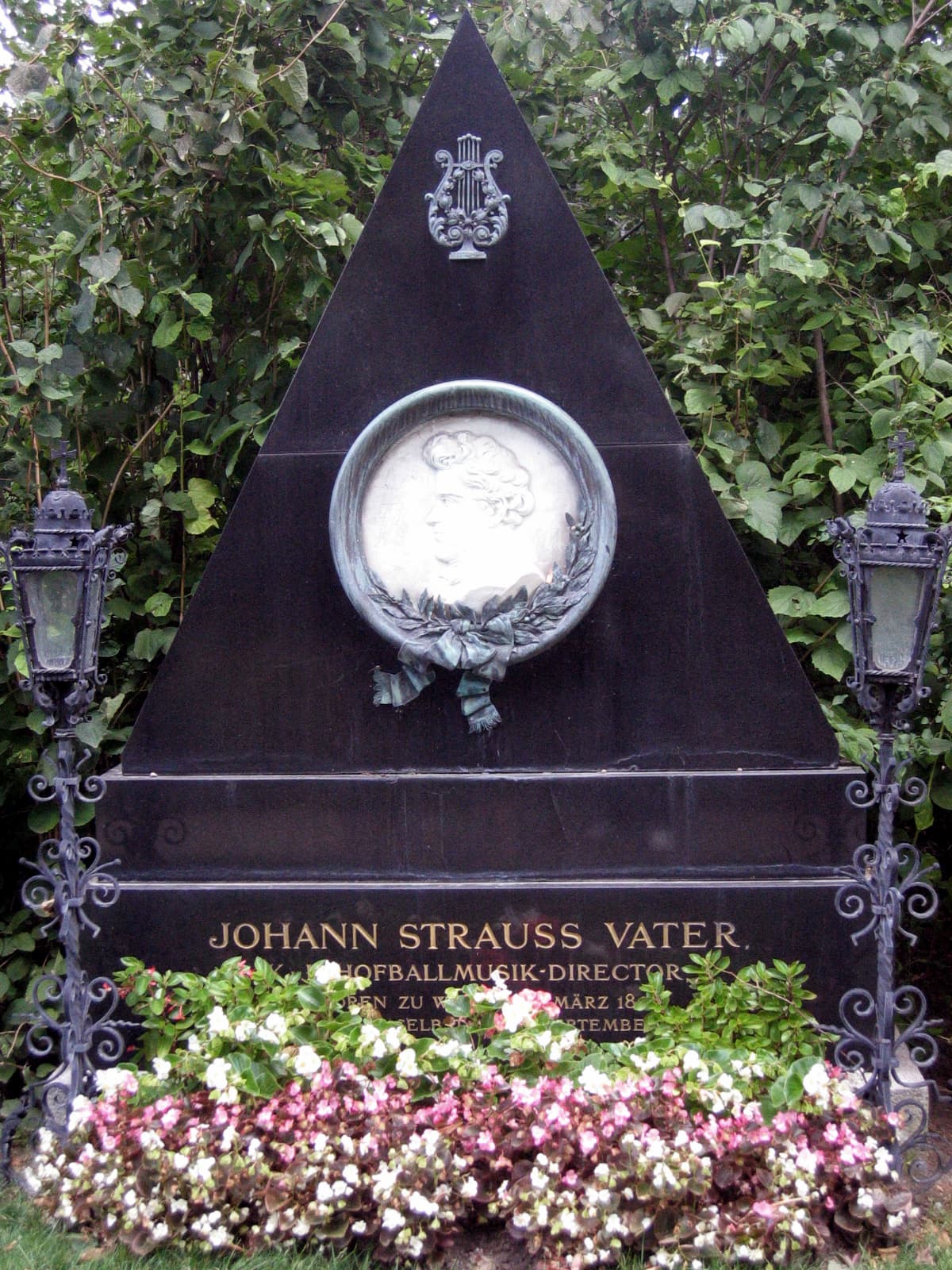Johann Strauss (Father) was the darling of the Viennese dance craze and simply known as “The Tyrant of Waltz.” As the leader of a hugely popular dance orchestra, he sent the pleasure-seeking and cheery population of imperial Vienna into throbbing waltz gyrations. When Richard Wagner heard him perform in 1838, he described Strauss as a “magic fiddler, the genius of Vienna’s innate musical spirit.”
Johann Strauss (Father): Seufzer-Galopp, Op. 9
Collapse During Orchestral Tour

Johann Strauss I
Having achieved local notoriety, he relentlessly took his orchestra on the road, ceaselessly playing in front of sold-out audiences in Germany and France. He was even invited to play for Queen Victoria’s coronation, especially composing his waltz “Homage to Queen Victoria of Great Britain,” Op. 103. However, touring during the 19th Century was not all pomp and glory, but fraught with dangers of all kinds.
A typical tour could last upwards of 14 months, and the orchestra had to endure horrid weather, hotel fires, floods, robbers, and especially illness and disease. In 1938, Strauss caught influenza between Edinburgh and Glasgow. Despite running a high fever, he kept on performing in Newcastle, Leeds, Hull, Wakefield, and Derby. Completely exhausted, Strauss finally realized that he needed to break off the journey. He did conduct the farewell concert, but during the third item on the program, he collapsed on the podium.
Johann Strauss (Father): Homage to Queen Victoria, Op. 103
His Recovery at Home

Strauss was initially taken to Paris and eventually Strasbourg to recover. To make matters worse, however, he was attacked by a nervous fever and lay unconscious for four days in his Strasbourg hotel. A very slow-traveling coach took him towards Vienna, but he relapsed once more. Delirious, he escaped from his sick room in the middle of the night and wandered the icy streets in his nightshirt until collapsing unconsciously.
Almost miraculously, Strauss did not die, but he recovered very, very slowly. Strauss was considered a seriously wealthy man, but in reality, the enormous sums he had earned abroad had also been spent. Strauss had always exerted himself to the point of complete exhaustion, and he was now paying the price. It took Strauss almost four months to recover his health, and when he returned to the podium for a benefit concert thousands of people made the pilgrimage to see and hear their idol.
Johann Strauss (Father): Sperl Polka, Op. 133
Affair With Emilie Trampusch

Johann Strauss on his death bed
Having regained his health and energy, Strauss engaged in a passionate affair with the young and nubile seamstress Emilie Trampusch, and the Viennese gossip columns worked overtime. His wife Maria Anna Strauss had long overlooked her husband’s infidelity, but when Emilie gave birth to Strauss’ son, she quickly filed for divorce. Strauss and Emilie would have a total of eight children, and financial obligations forced him back onto the touring circuit during the years of political upheaval across Europe.
Cause of Death
He performed in Germany, France, and once again appeared in England. As before, the English climate did not agree with him and he felt weak and exhausted. Back in Vienna, he once again ignored the precarious state of his health and thoroughly enjoyed his life. After a brief journey to Italy, Strauss returned to Vienna and was quickly fighting for his life. One of Emilie’s children had carried a scarlet fever infection home from school. It turned out to be a severe infection and although doctors tried their best, Strauss was in deep trouble. The illness was complicated by an inflammation of the brain, and Strauss died on 25 September 1849, at the age of 45.
Johann Strauss (Father): Kettenbrücke-Walzer, Op. 4 (Suspension Bridge Walz)
The Funeral

Grave of Johann Strauss at Döbling Cemetery, Vienna, Austria
At first, Vienna was unable to believe that Johann Strauss had died. In a way, he had been able to transcend political divisions and social classes, and the imperial city prepared for a hero’s funeral. The coffin was first carried to St. Stephen’s Cathedral, with a member of the Strauss orchestra carrying the master’s violin on a black cushion, with the torn strings hanging down. Military bands played funeral marches composed by Haslinger, Fahrbach, Lanner, and Strauss, and roughly 100,000 Viennese followed the funeral procession.
The poet Eduard Bauernfeld dedicated the following verses to Strauss:
Poor Vienna! Now the gods
Have ceased to love you, for they’ve taken
Your own Strauss, your best-beloved,
Your last comfort and your fame.
Right it is that streets are crowded,
That the funeral bells are tolling,
That this artist’s brothers sadly
Bear their master’s early shell.
Deck the mound with which it’s covered
Always with the freshest flowers,
And engrave upon the headstone
“All our life is but a dance.”
Hector Berlioz probably best summed up the enormous influence and importance of Johann Strauss Father by declaring that “Vienna without Strauss is like Austria without the Danube.”
For more of the best in classical music, sign up for our E-Newsletter
